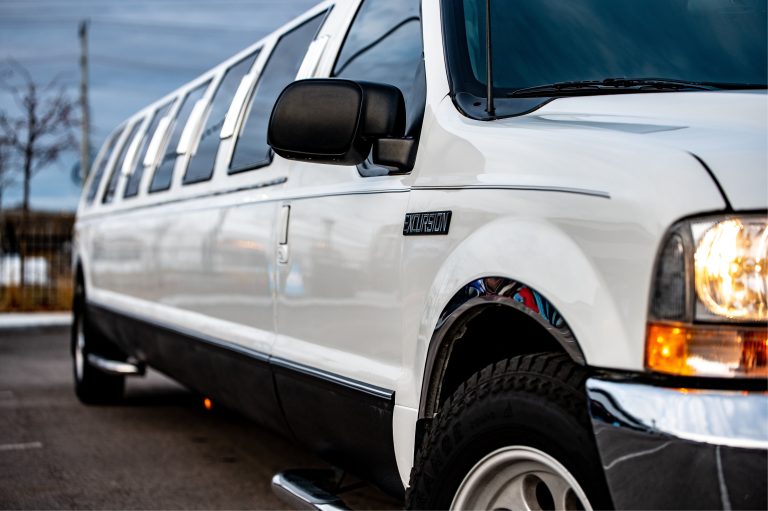Starting a limousine business in Dubai can be an exciting and profitable venture. The city’s thriving tourism industry, corporate events, and affluent clientele create a high demand for luxury transportation services. However, launching and managing a successful limousine business in Dubai requires careful planning, adherence to regulations, and strategic decision-making. In this comprehensive guide, we will walk you through the step-by-step process of establishing your own limousine business in the vibrant city of Dubai, with a focus on business setup consultants in Dubai who specialize in the limousine business.
The limousine business is a promising opportunity in the UAE. People use these services for things like going to the airport, business trips, special events, and just enjoying luxury. Dubai also hosts lots of big events and fancy weddings, so there’s a demand for fancy cars. If you can get contracts with the government or big companies, it can be a steady source of income. So, offering limousine services in Dubai can be a good business idea because there are lots of potential customers who want these kinds of rides.
Requirements to start limousine business:
Typically, you will need the following documents:
- Passport copies of all shareholders and managers.
- No-Objection Certificate (NOC) from your sponsor (if applicable).
- Memorandum of Association (MOA) and/or Local Service Agent Agreement (if applicable).
- Business plan.
- Lease agreement for your business premises.
- Any other documents requested by the relevant authority.
How to get a License to start limousine business in Dubai?
Registering a limousine business in Dubai involves several steps and licensing requirements. Verifying the latest information with the relevant authorities or a business consultant in Dubai is essential. Here’s a general overview of the process:
Types of Licensing required for limousine Business:
Apply for the appropriate trade license, which is typically categorized as a “Transportation and Limousine Service License.”
Depending on your business structure, you may need to apply for other licenses, such as:
- Public Transportation Operator’s License,
- Passenger Transportation Vehicle License,
- Public Transportation Brokerage License.
These licenses are usually obtained from the Roads and Transport Authority (RTA).
Steps to apply for License:
Here are the steps to register a limousine business in Dubai, broken down into more detailed actions:
1. Define Your Business:
Clearly define your business model, including the types of limousine services you plan to provide, such as airport transfers, corporate transport, special events, or city tours.
2. Choose the Location:
Determine where you want to operate your business. You can either set up your business in the mainland or within one of Dubai’s numerous free zones. The choice of location will influence the licensing process and requirements.
3. Reserve and Approve Your Business Name:
Check the availability of your chosen business name with the Department of Economic Development (DED) or the relevant free zone authority. Submit the necessary documents for initial approval.
4. Vehicle Acquisition and Preparation:
Acquire the necessary vehicles for your limousine fleet. Ensure they are well-maintained, insured, and compliant with Dubai’s safety and emission standards.
5. Licensing Process:
Prepare and submit your trade license application to the relevant authority based on your chosen location (DED for mainland or the free zone authority if applicable). For transportation services, you may need multiple licenses, including a “Transportation and Limousine Service License” and other specific permits from the Roads and Transport Authority (RTA).
Provide all required documents, including passport copies of shareholders and managers, No-Objection Certificate (NOC) if applicable, and lease agreements.
Pay the necessary licensing fees and other associated costs. Generally, a limousine license in Dubai can cost you different amounts, typically between AED 15,000 and 20,000.
These fees can vary depending on your location, the number of vehicles, and the type of licenses required
6. Final Approvals and Compliance:
Await final approvals from the relevant authorities, including the issuance of your trade license and any additional permits. – Maintain compliance with all regulations and regularly renew your licenses and permits as required.
7. Marketing and Operations:
Begin marketing your limousine services to target customers, such as tourists, businesses, and event organizers. – Set up efficient operational processes to handle reservations, scheduling, and customer service.
The initial investment to start a limousine business in Dubai?
The cost of starting a limousine business in Dubai can vary widely, depending on factors like fleet size, vehicle type, location, and service offerings. As a rough estimate, setting up a small limo service with a few vehicles may require an initial investment of around AED 500,000 to AED 1 million or more, including expenses for vehicle acquisition, licensing, insurance, driver recruitment, and training, office space, and marketing. High-end or luxury limousine businesses with larger fleets and premium services can involve significantly higher start-up costs, potentially exceeding several million dirhams. Consulting with industry experts and Business Setup Consultants in Dubai can provide valuable guidance on cost projections and regulatory compliance.
Read More: How to Start a Photography Business in Dubai?
Conclusion:
Starting a limousine business in Dubai can be rewarding, offering luxury transportation services in a city known for its opulence and tourism. By following the steps outlined in this guide and seeking guidance from experienced Business Setup Consultants in Dubai, you can embark on a successful journey into the world of the limousine business. Remember that meticulous planning, compliance with regulations, exceptional customer service, and continuous business development are the keys to achieving lasting success in this competitive industry.





